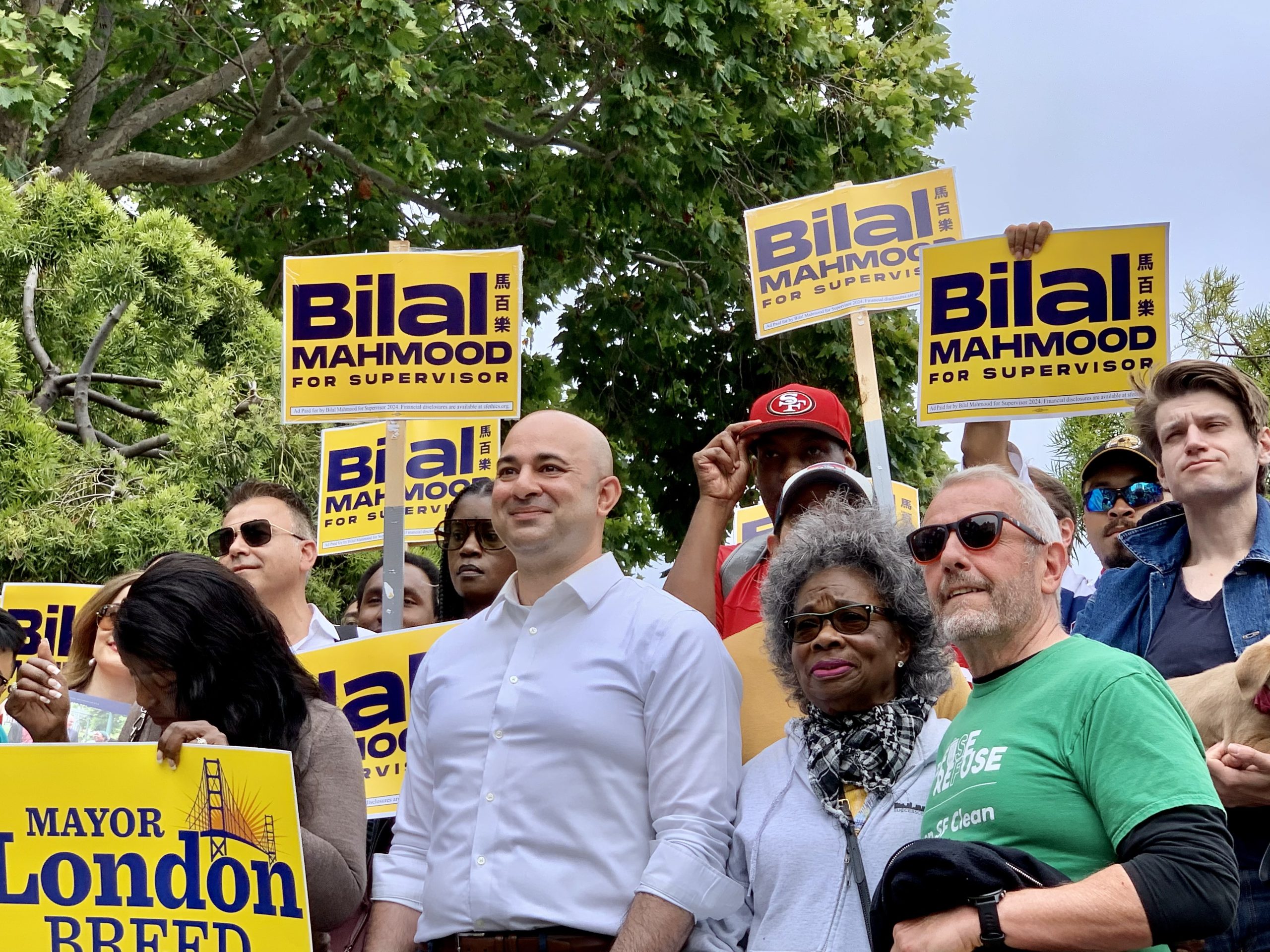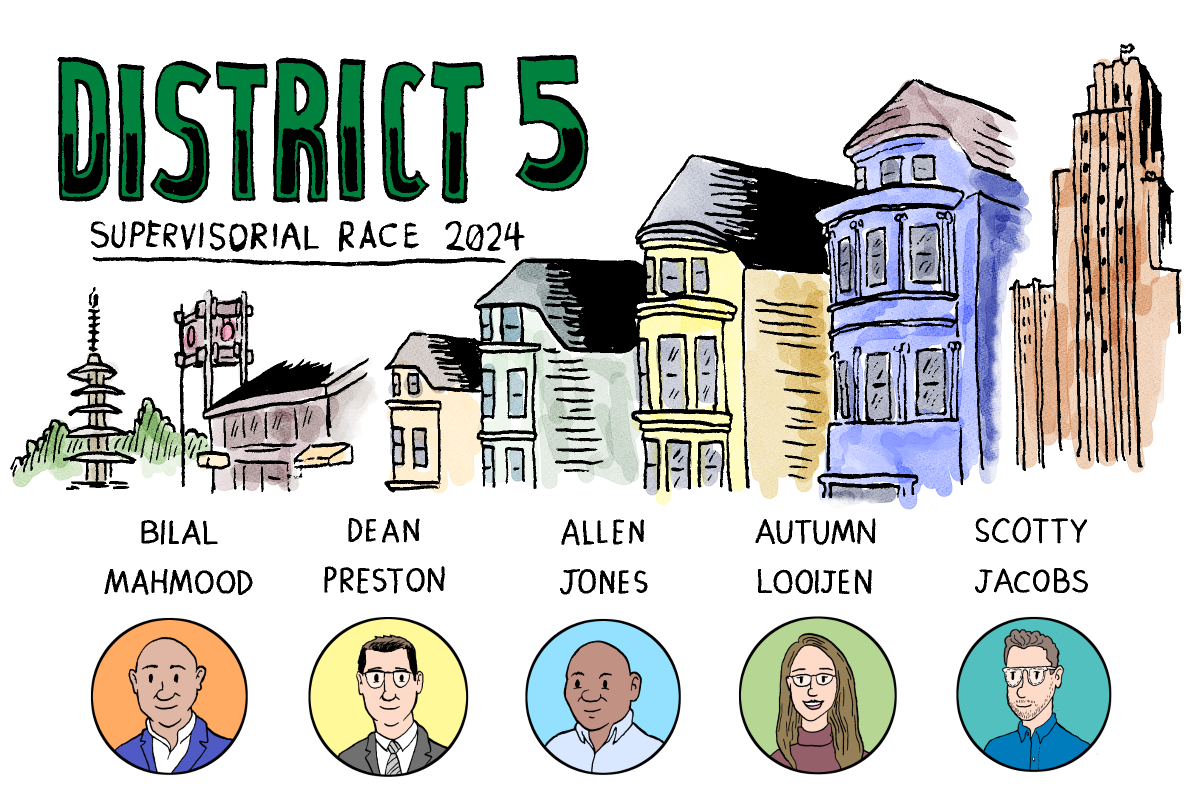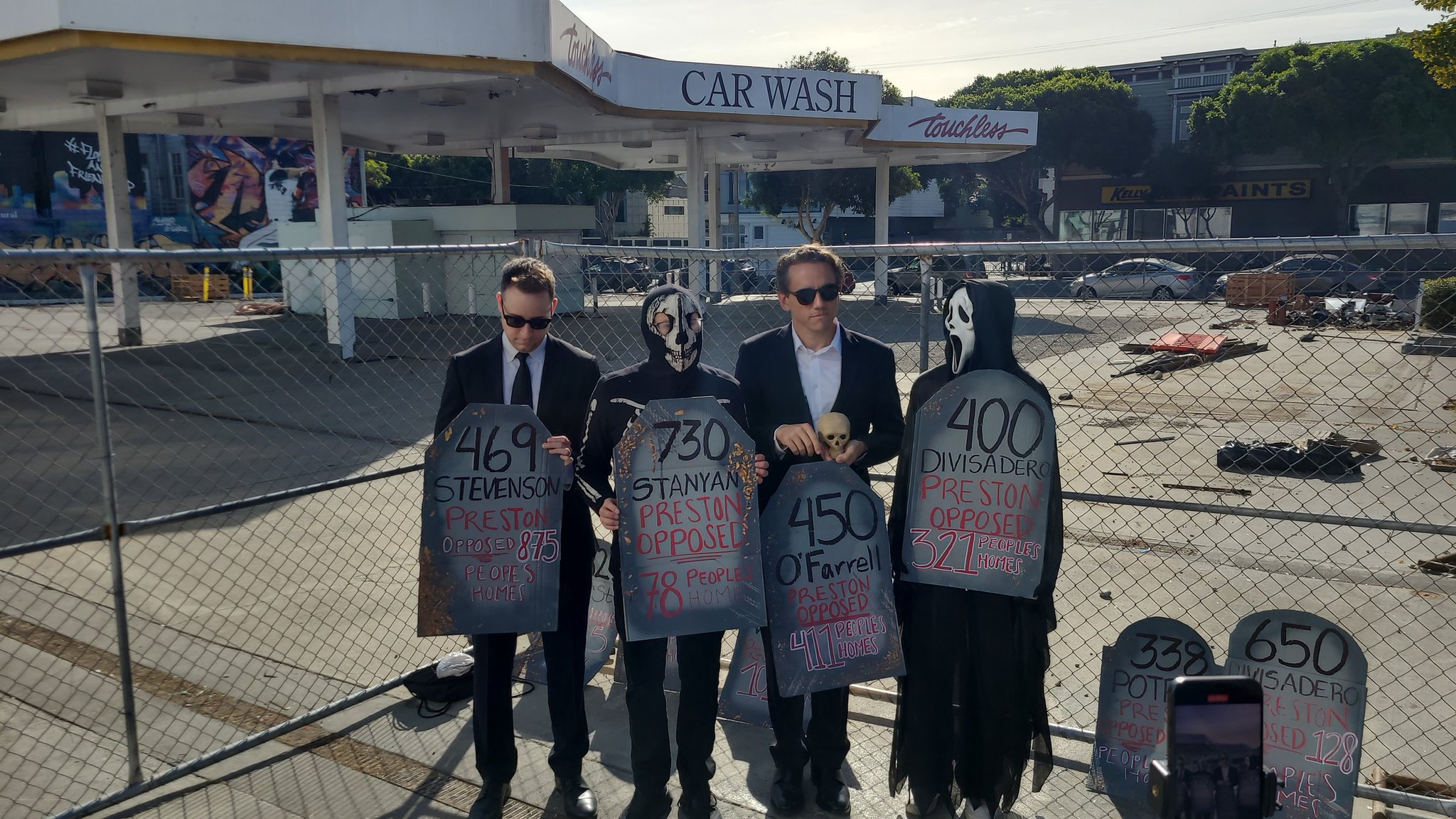[ad_1]
Supervisor-elect Bilal Mahmood at a public interview on Monday pledged to be collaborative and cut down bureaucracy in his new role as the representative of District 5 — and residents seemed optimistic about his plans.
Mahmood, who in January will take the seat of Supervisor Dean Preston, discussed to a full room of residents at Manny’s his plans to address the fentanyl crisis and homelessness, and how he plans to make it easier to build housing in San Francisco.
For Mahmood, eliminating bureaucracy was the solution to many problems, from permitting new housing to hiring more police officers.
Asked by an audience member how Democrats — thereby, most of San Francisco — would “get their shit together” as the rest of the country becomes more conservative, Mahmood emphasized a need to deal with the city’s local issues to avoid being a “punching bag.”
“There’s a narrative that San Francisco has moved to the right, which I fundamentally disagree with,” Mahmood said, adding that he considers himself a progressive within the slate of new candidates elected to the board this election. “Unless we focus on the issues and get the basics right, it’s going to be very difficult to live up to our progressive values.”
Housing
Mahmood didn’t answer the direct question of how much housing would be built under his watch, but said “as a city, we don’t really have a choice” but to get to building: The city has a state mandate to build more than 82,000 housing units by 2031.
To make that process go faster and encourage building, he said, he wants to reduce the “high number of permits and impact fees” in the early stages of development, and reform the post-entitlement process to keep developers on slow or lengthy projects.
“My focus is what makes us [take] so long to build housing in the city? It’s all the bureaucracy, it’s all the red tape,” said Mahmood, who has aligned himself with SF YIMBY and on the campaign trail, often criticized Preston for putting too much emphasis on affordable housing at the expense of other types. “When you build housing faster, you make rents cheaper for market rate, middle income and affordable housing.”

Mahmood, who is new to public office, said he is preparing himself by hiring staff, meeting with residents, community groups, and department heads, and that he has been trying to go jogging every morning. Next month, he said, he’ll enter a Board of Supervisors onboarding program.
But unlike other new or aspiring leaders who seem to know little about how things work at City Hall, Mahmood was generally knowledgeable about the topics his new constituents questioned him about on Monday evening — or at least, he had answers.
Drugs and homelessness
When it comes to drugs, Mahmood said he is looking forward to implementing a Drug Market Intervention strategy, a deterrence-focused approach for law enforcement to disrupt open-air drug dealing.
For homelessness, Mahmood said he opposes encampment sweeps — his answer was interim supportive housing, which he noted has helped reduce homelessness in San Jose. Alongside new shelters, tiny homes, and more comprehensive, wraparound services, he said this policy approach could help get people off the streets in San Francisco.
Amid a massive budget shortfall, Mahmood said housing and public safety would remain his top two priorities.
“My focus is on … ensuring that whatever cuts we make, that those two goals are not impeded,” Mahmood said.
Joining the board
As he discussed his future colleagues and new job, Mahmood kept the tone positive and emphasized his willingness to foster good relationships with his fellow supervisors.
“One of the things I’ve been surprised by in some of my meetings and interactions is how much I’m agreeing with certain things that you wouldn’t expect,” Mahmood said.
Asked by Yekutiel about who he might disagree with the most on the board, he spoke of conversations he’s had with Supervisor Shamann Walton about the Dreamkeeper Initiative and said he is supportive of maintaining the program’s objective despite scandals this past year.
Similarly, he mentioned compromising with Supervisor Connie Chan about Urban Alchemy’s woes, and said he is aligned with Supervisor Jackie Fielder about preserving the city’s sanctuary city status in the face of expected anti-immigration efforts at a national level.
Mahmood refused to say who he’d prefer as board president between supervisors Rafael Mandelman and Myrna Melgar — “Does their name start with M or R?” as Yekutiel asked it — but said he was looking to support “someone who can bring people together.”
When it came to his opponent, Preston, Mahmood still squeezed in a couple of jabs: He accused Preston of not focusing enough on addressing the fentanyl crisis, and echoed a claim made at a Mission Local candidates forum that Preston has never visited the Tenderloin police station.
Preston has insisted that claim is false.
Mahmood emphasized tonight that he won “nearly every precinct in District 5.” But Preston won more first-place votes in the district, and was top ranked over Mahmood in 23 of 43 precincts. After ranked-choice votes were tallied, Mahmood came out ahead.

Mahmood said he has also been meeting with Mayor-elect Daniel Lurie, the nonprofit founder and Levi Strauss heir who put unprecedented amounts of cash into his campaign and came out well above his competition.
“It helps to be a billionaire, but regardless of that fact, he doesn’t owe anything to anyone,” Mahmood said, noting Lurie lacked the big political or institutional backers other mayoral candidates had. “So he has the liberty to take big swings on things without being afraid of repercussions, because he got elected completely on his own.”
Whether Mahmood, whose campaign raised large sums and enjoyed the support of tech billionaires and political action groups like GrowSF, will be beholden to anyone, is unclear. But tonight, he appeared to distance himself from those groups.
When a resident pointed out controversial GrowSF billboards in District 5 stating an apparent campaign promise to develop a former car wash at 400 Divisadero into housing, Mahmood was quick to emphasize that it wasn’t his.
“What are the specific things that will turn that into apartments?” a resident asked.
The car wash was acquired this year, and plans to build 200 units of housing at the site are already in the works. The site’s owners called the project “financially impractical” when the most recent developer dropped out.
“It wasn’t my billboard, someone else put it up. So it wasn’t a promise I made on that one,” Mahmood said. But still, he said, the answer was simple: Don’t let developers get “stuck in development hell,” and reduce the permitting requirements and bureaucracy.
[ad_2]
Source: missionlocal.org






